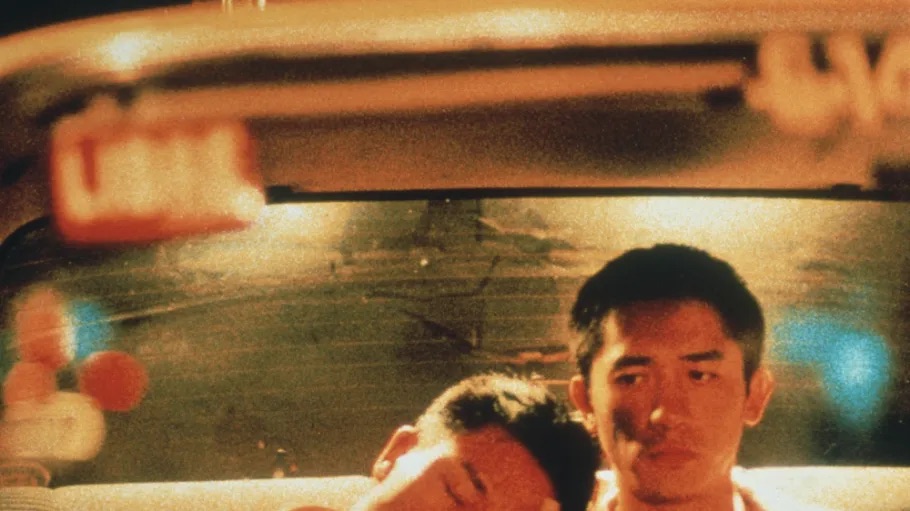Je Tu Il Elle, a French-Belgian film directed by and starring Belgian director Chantal Akerman, marked the beginning of French New Wave cinema. Perhaps the most remarkable thing about this film, however, is the sheer lack of content in it. By that I mean that the film—and its young protagonist, Julie—is missing many of the traditional aspects of cinema and is instead characterized by painfully slow scenes and long silences. In fact, for the first third of the film Julie does essentially nothing, alone in a room, never speaking save for the occasional voiceover. This ambiguity and minimalism extends to Julie’s character as well, who rarely speaks throughout the film, whose motivation, past and future we know nothing about, and whose name we never learn. This lack of identity is far from accidental, however. I believe this is Akerman’s way of rejecting the heteronormative desire for categorization and taking the politics out of identity and sex.
First, I will explore this in relation to Julie as a character. As explained, Julie has little to no identity, and it often feels as though she is simply the lens through which the audience is observing the world rather than a character of her own. “Of the three characters, this is unique to [Julie]. The driver and the woman,”—two characters Julie later meets up with—“both have various trappings of life shown or spoken about so that even though we do not know their names, we know more about who they are. Julie has nothing” (Eliana Silbert, in response to the Week 11 Discussion Board post “Lack of Identity”). This ambiguity in Julie’s character seems to be Akerman’s way of rejecting the idea that the liberation of the lesbian body, or the queer identity in general, must be through “its ability to speak out and name itself in defiance of prohibitive legislation” (Jagose 4; emphasis mine). As Annamarie Jagose points out in her article “Lesbian Utopics”, in trying to establish identity separate from the norm, creative works like this can often unwittingly solidify the norm at the same time (6). In Je Tu Il Elle, however, Julie rarely speaks out and has no name in the world of the film; this could be seen as a rejection of this idea that one must be defined in relation to power structures at all (whether contrary to them or not).
Another subversive—and undoubtedly queer—aspect of Akerman’s film is the way it centers physical bodies and actions over identity or story. As Ros Murray argues in her article “The Radical Politics of Possibility”, Akerman seems to be taking “an existentialist approach to the queer,” by “focus[ing] on doing rather than being” (44). Je Tu Il Elle is defined both by drawn-out shots of action—Julie rearranging her room, eating, writing—and by graphic female nudity—Julie walking around naked in her room and making love to her ex-lover. This focus on action takes away the need for identity altogether, because we as an audience “are given no information about Julie that might explain her circumstances or psychology; we are simply exposed to her actions,” and she therefore has more freedom than anyone whose “existence is countanced by the system” (Murray 45, Jagose 2).
Jagose argues that “claims to liberation through the repeated articulation of sexual truths do not mark an escape from patriarchal legislation but rather are thoroughly coterminous with that system of control whose major mechanism is the ‘transformation of sex into discourse’” (9). Je Tu Il Elle seems to acknowledge this, and therefore makes no effort to define the sexuality of Julie. Instead, we are invited to watch a 15-minute, extremely graphic sex scene with Julie and another woman, through which Akerman re-transforms this “discourse” back into sex, and in doing so depoliticizes those sexual acts and allows them to simply exist. At the same time, this emphasis on queer sexual acts also blantatnly depicts the very thing that historical oppression of queer people has been legislating against. In this she is not only allowing the queer body to exist with freedom, but questioning the “very terms through which identity is articulated” (Jagose 19).
Bibliography
Pohl, Nicole. “Jagose, Annamarie. Lesbian Utopics.” Utopian Studies 1996: 123-. Print. “The Radical Politics of Possibility: Towards a Queer Existential Phenomenology through
Chantal Akerman’s Je Tu Il Elle.” Feral Feminisms, feralfeminisms.com/radical-politics-of-possibility/. Accessed 13 Apr. 2024.
